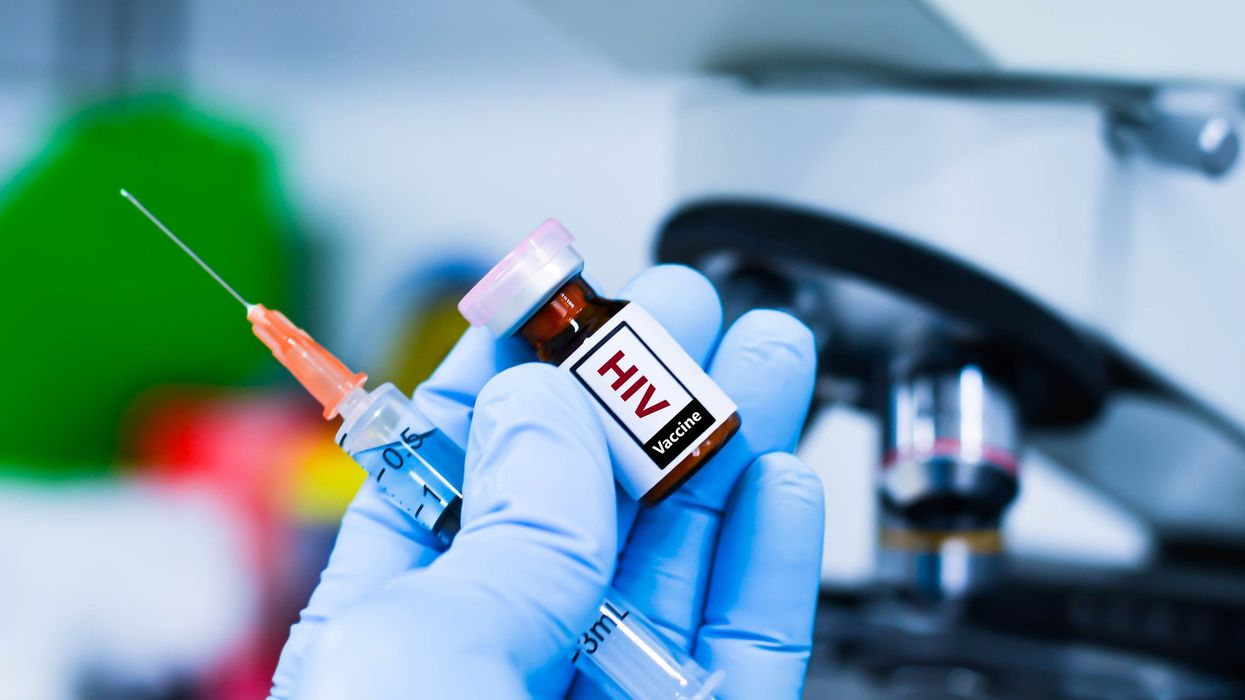The Trump administration is planning to eliminate the Centers for Disease Control and Prevention’s (CDC) Division of HIV Prevention. The collapse of HIV prevention will mean 143,000 additional people in the United States will acquire HIV in the next five years. We are on the cusp of a public health crisis.
The most recent attack on the reproductive health center in Palm Springs is a wake-up call to what could be to come if we continue to be bystanders in the erasure of reproductive and sexual health rights. A profound crack in an already fragile public health infrastructure continues to grow as government officials consider eliminating vital public health structures that monitor health trends, outbreaks, and our ability to prepare and respond to an ongoing HIV epidemic.
HIV does not discriminate, and there are over 1.2 million people in the United States living with HIV. We could find ourselves back in a time, like the 1980s, of hopelessness and devastation for frontline communities that are already burdened with ending the HIV epidemic with limited funding and high treatment costs, which are estimated to increase to $60 billion by 2030 from new HIV diagnoses.
With the closure of the CDC's Sexually Transmitted Infections Lab in April, a critical investigative tool to track possible outbreaks, the staggering impact on marginalized communities' barriers to access testing and education while also navigating deep-rooted stigma and discrimination is cause for deep concern. Especially now that funding to disseminate free HIV self-testing kits is coming to an end, scaling back will set us back.
I’m a public health practitioner with over a decade of experience in health equity and sexual reproductive health and an advocate for the importance of ensuring that individuals have the necessary information to make informed decisions about their sexual health and well-being. Reducing the public health workforce and eliminating funding for awareness, prevention, and treatment will mean individuals will be more susceptible to developing more serious health problems, such as opportunistic infections or certain cancers, due to a weakened immune system.
While we have made great strides in the decades of scientific biomedical advancements to prevent HIV by promoting the use of regular testing, condoms, pre-exposure prophylaxis, and treatment of the virus with antiretroviral therapy, there is still no cure. It is a manageable chronic condition with medication adherence to maintain viral loads to undetectable levels and ensure HIV cannot be transmitted.
However, the chances of acquiring HIV are increased with other STIs like chlamydia, gonorrhea, and syphilis, which have steadily been on the rise in the United States. The active dismantling of sexual health infrastructure and education will leave an indelible mark on the future of public health for everyone. The reduced focus on sexual health and limited public health interventions at the national level place an enormous strain on the waning resilience of state and local entities to respond to the next public health emergency and endure a surge or a potential outbreak.
Once more, marginalized communities will face the brunt of the burden, especially LGBTQ+, Black, and Latine communities and women of color living in the South, a region accounting for 53% of new HIV diagnoses.
This is a profoundly challenging time as public health practitioners and sexual and reproductive health practitioners like myself continue to see their life's work and important health information disappear as we navigate the uncertain road before us; It was a chilling revelation as I looked for information for a community member on the impact of HIV and the page was no longer available on the CDC website. Many of us are burnt out, exhausted, and jaded by the current political landscape because we see the impact in the communities we work alongside and serve, but we have done more with less. This is the time to leverage our innovation and strengthen collaborations to find solutions and move us closer to ending the HIV epidemic by 2030.
We cannot turn our backs on this crisis.
People’s lives depend on our continued ability to speak out on the implications of eliminating HIV prevention, ensure we’re making investments in educational resources that inform the public on the importance of testing, prevention, and treatment, and collaborate with our networks to support those disproportionately impacted by HIV.
HIV is preventable and treatable. We have the science, tools, and information. We have been at this crossroads before, a time of little resources and support from the federal government, but through collective action, we can continue to build a future where sexual health is nurtured and promoted as a fundamental right for everyone.
Vanessa A. Castro, MPA, MPH, is a Public Voices fellow of the OpEd Project, The National Latina Institute for Reproductive Justice and the Every Page Foundation, working in the nonprofit sector to promote health equity through a Sexual and Reproductive Health Equity Framework rooted in research and education to empower individuals in marginalized communities to make informed decisions about their health and wellbeing.




















Trump & Hegseth gave Mark Kelly a huge 2028 gift